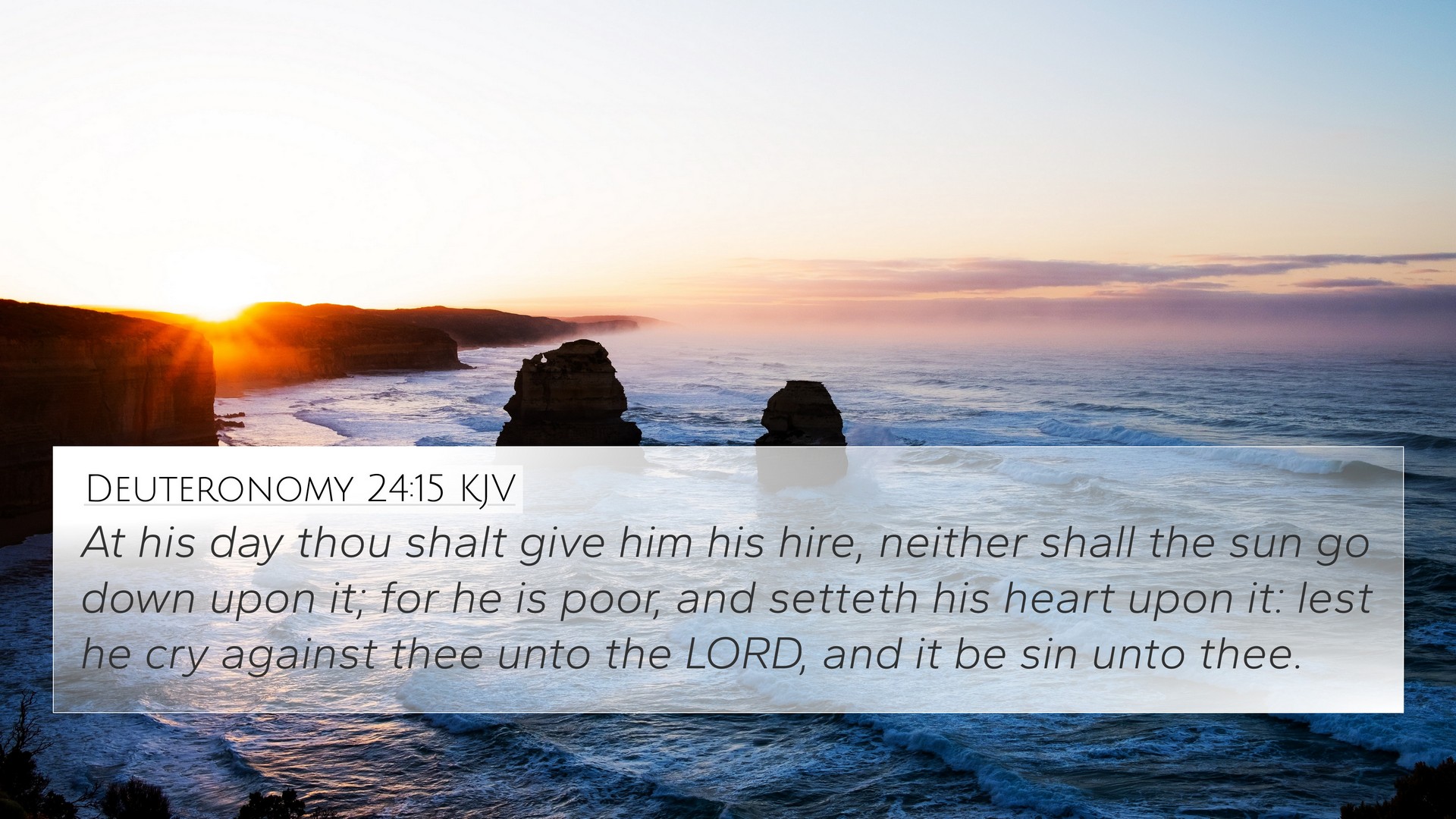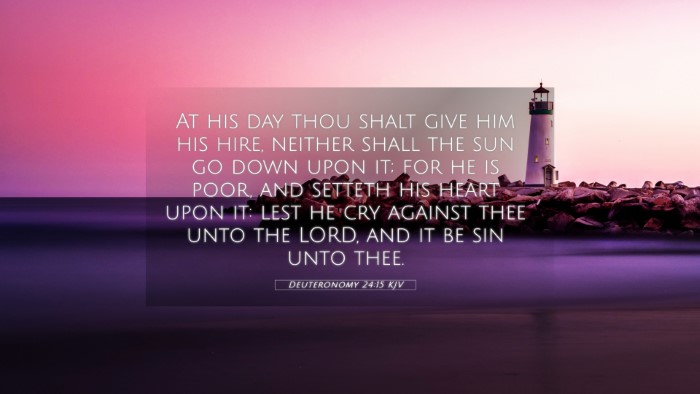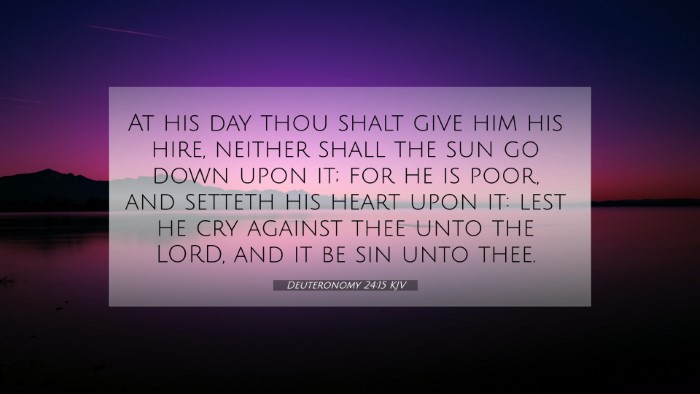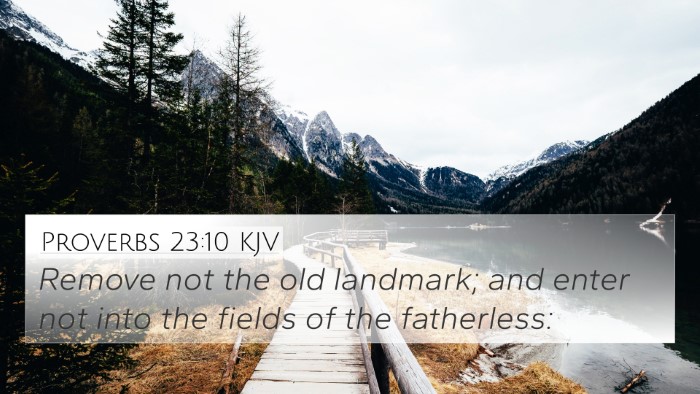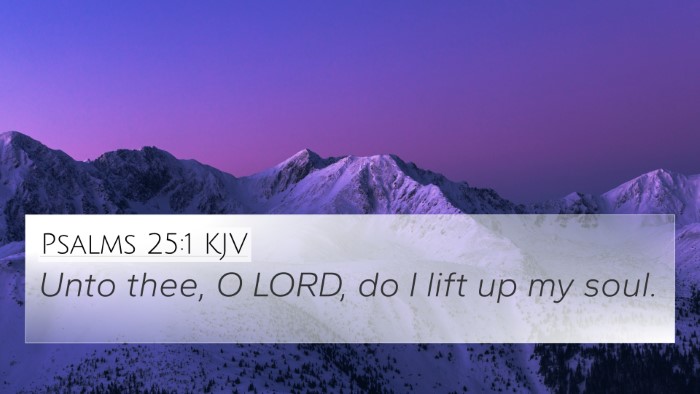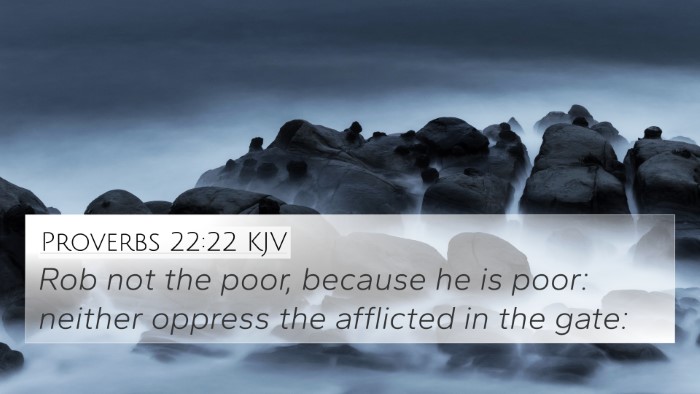This section features a detailed cross-reference designed to enrich your understanding of the Scriptures.
Below, you will find carefully selected verses that echo the themes and teachings related to Deuteronomy 24:15 KJV. Click on any image to explore detailed analyses of related Bible verses and uncover deeper theological insights.
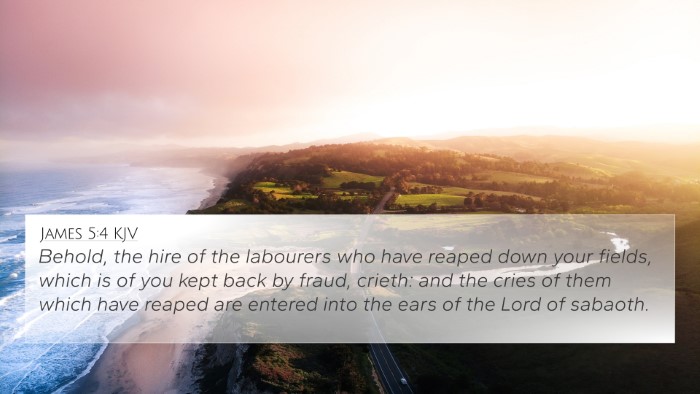 James 5:4 (KJV) »
James 5:4 (KJV) »
Behold, the hire of the labourers who have reaped down your fields, which is of you kept back by fraud, crieth: and the cries of them which have reaped are entered into the ears of the Lord of sabaoth.
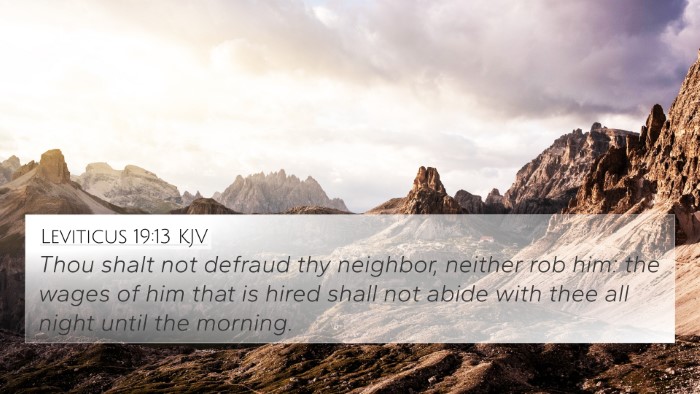 Leviticus 19:13 (KJV) »
Leviticus 19:13 (KJV) »
Thou shalt not defraud thy neighbor, neither rob him: the wages of him that is hired shall not abide with thee all night until the morning.
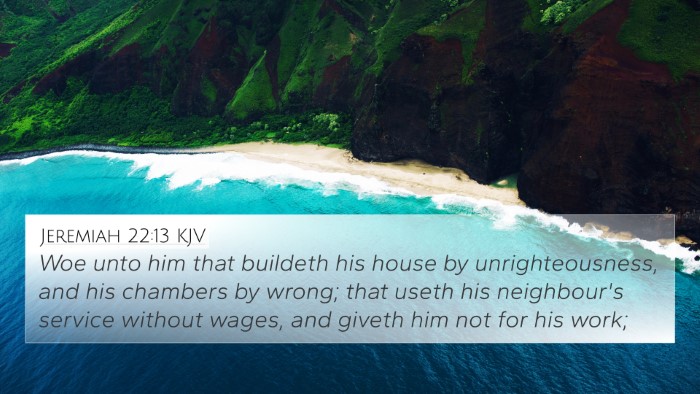 Jeremiah 22:13 (KJV) »
Jeremiah 22:13 (KJV) »
Woe unto him that buildeth his house by unrighteousness, and his chambers by wrong; that useth his neighbour's service without wages, and giveth him not for his work;
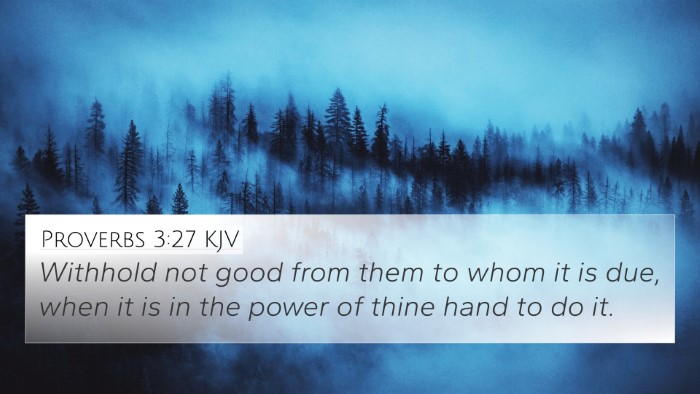 Proverbs 3:27 (KJV) »
Proverbs 3:27 (KJV) »
Withhold not good from them to whom it is due, when it is in the power of thine hand to do it.
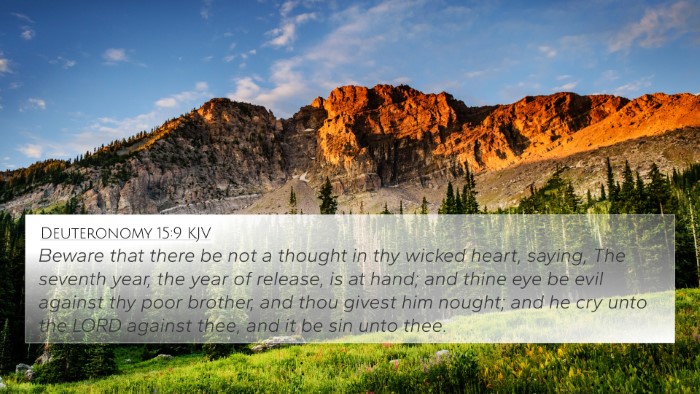 Deuteronomy 15:9 (KJV) »
Deuteronomy 15:9 (KJV) »
Beware that there be not a thought in thy wicked heart, saying, The seventh year, the year of release, is at hand; and thine eye be evil against thy poor brother, and thou givest him nought; and he cry unto the LORD against thee, and it be sin unto thee.
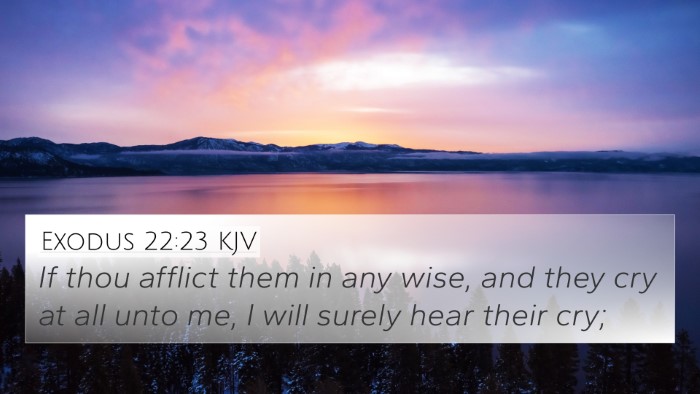 Exodus 22:23 (KJV) »
Exodus 22:23 (KJV) »
If thou afflict them in any wise, and they cry at all unto me, I will surely hear their cry;
 Job 35:9 (KJV) »
Job 35:9 (KJV) »
By reason of the multitude of oppressions they make the oppressed to cry: they cry out by reason of the arm of the mighty.
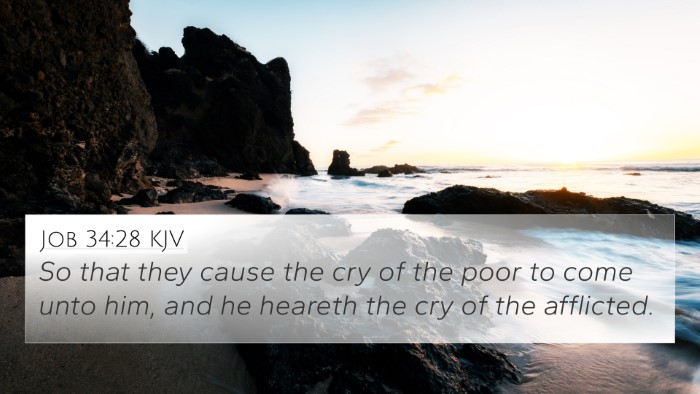 Job 34:28 (KJV) »
Job 34:28 (KJV) »
So that they cause the cry of the poor to come unto him, and he heareth the cry of the afflicted.
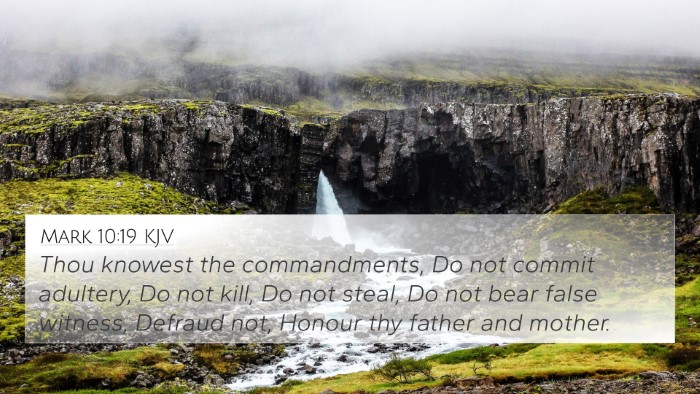 Mark 10:19 (KJV) »
Mark 10:19 (KJV) »
Thou knowest the commandments, Do not commit adultery, Do not kill, Do not steal, Do not bear false witness, Defraud not, Honour thy father and mother.
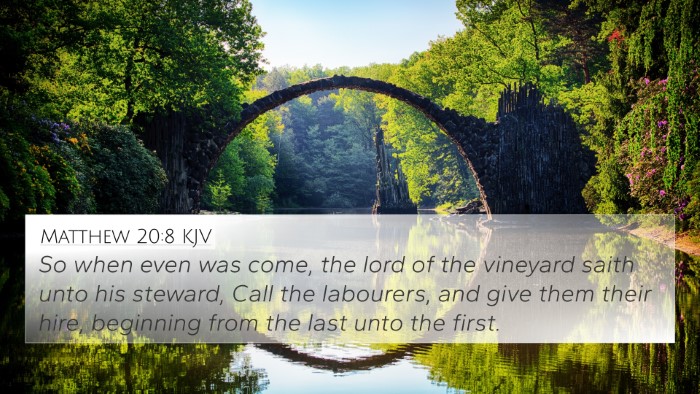 Matthew 20:8 (KJV) »
Matthew 20:8 (KJV) »
So when even was come, the lord of the vineyard saith unto his steward, Call the labourers, and give them their hire, beginning from the last unto the first.
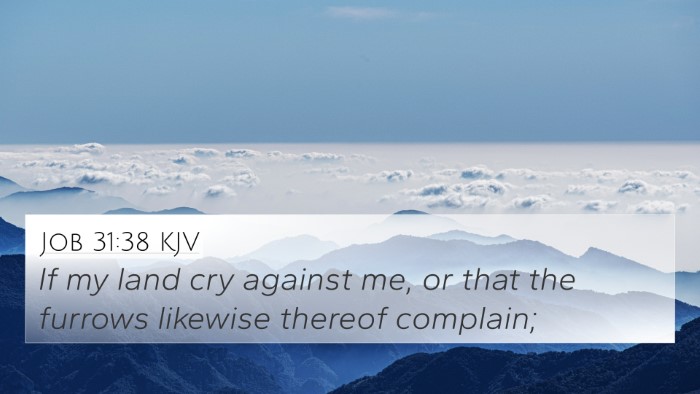 Job 31:38 (KJV) »
Job 31:38 (KJV) »
If my land cry against me, or that the furrows likewise thereof complain;
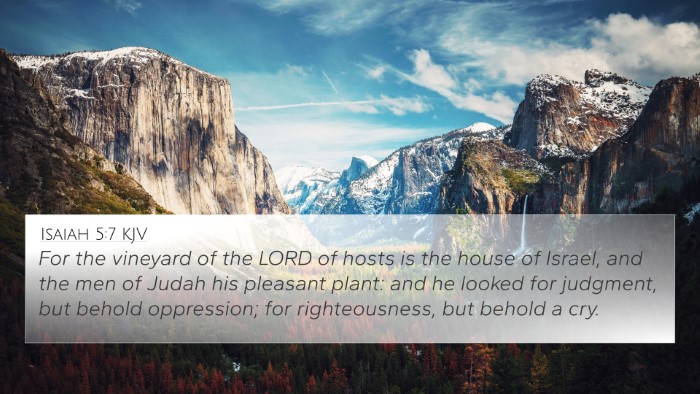 Isaiah 5:7 (KJV) »
Isaiah 5:7 (KJV) »
For the vineyard of the LORD of hosts is the house of Israel, and the men of Judah his pleasant plant: and he looked for judgment, but behold oppression; for righteousness, but behold a cry.
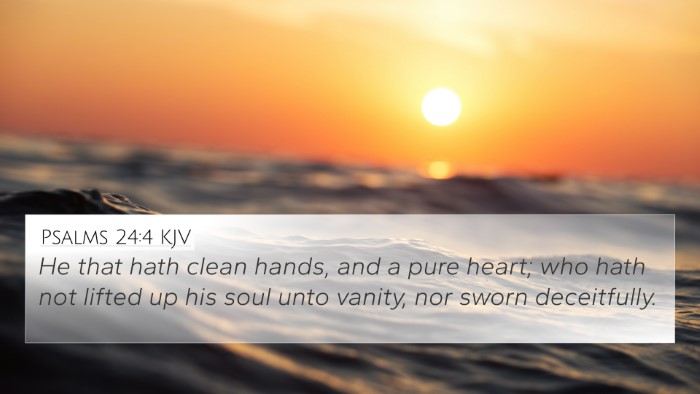 Psalms 24:4 (KJV) »
Psalms 24:4 (KJV) »
He that hath clean hands, and a pure heart; who hath not lifted up his soul unto vanity, nor sworn deceitfully.
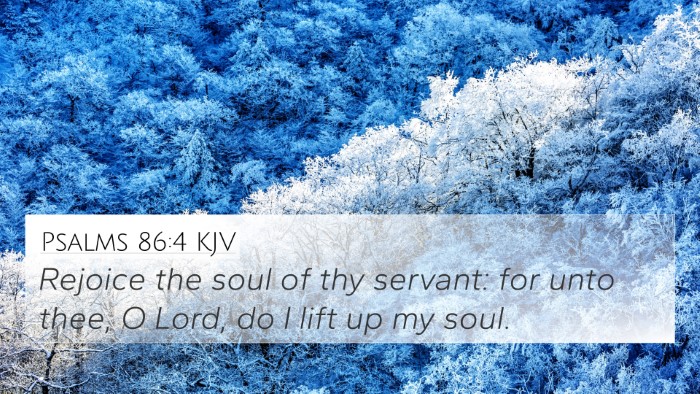 Psalms 86:4 (KJV) »
Psalms 86:4 (KJV) »
Rejoice the soul of thy servant: for unto thee, O Lord, do I lift up my soul.
